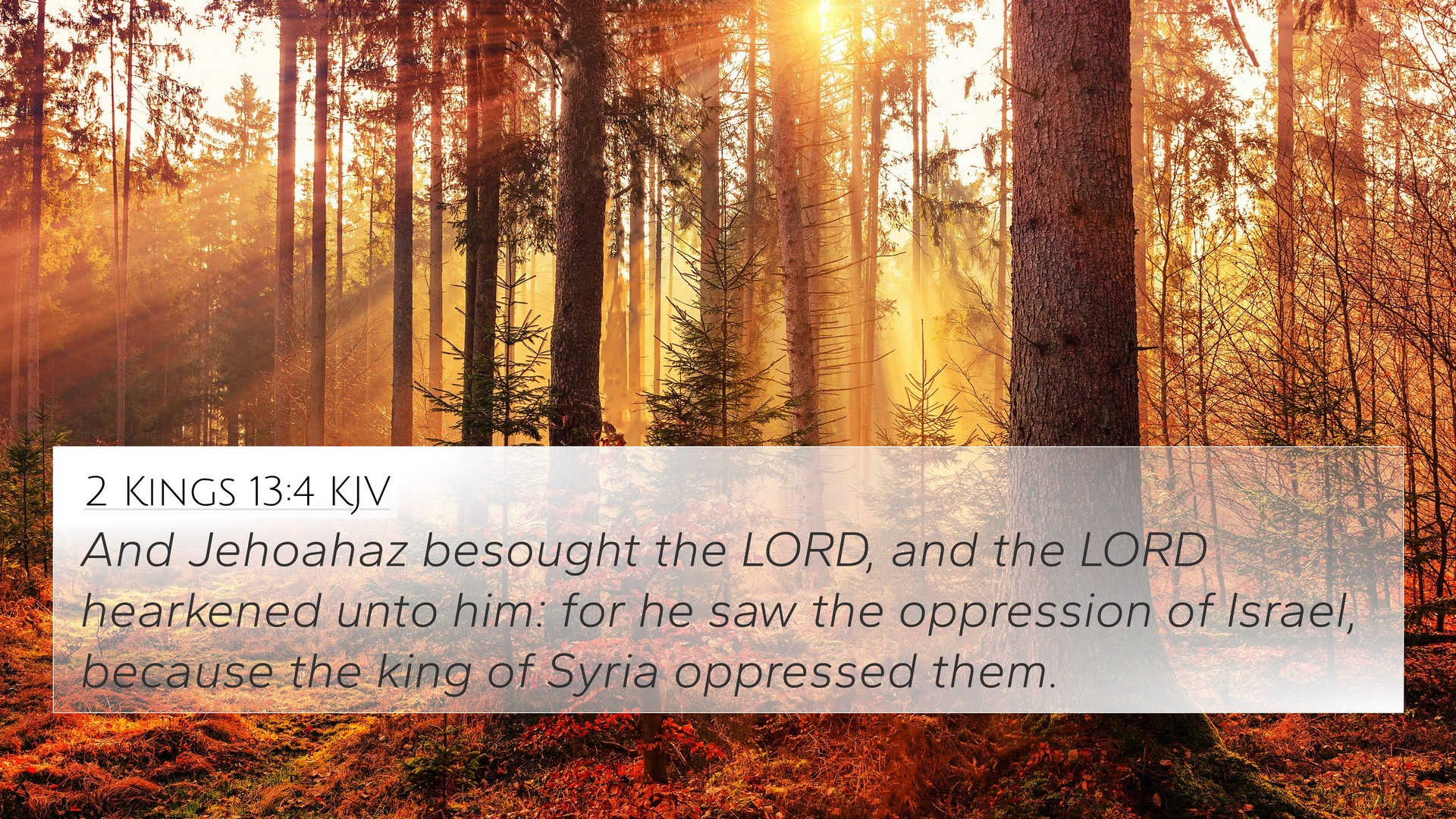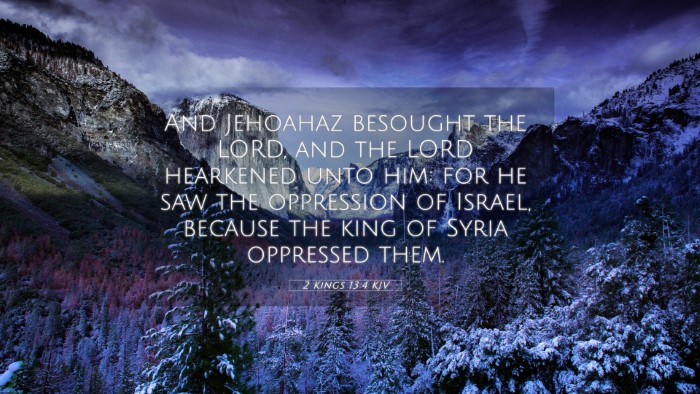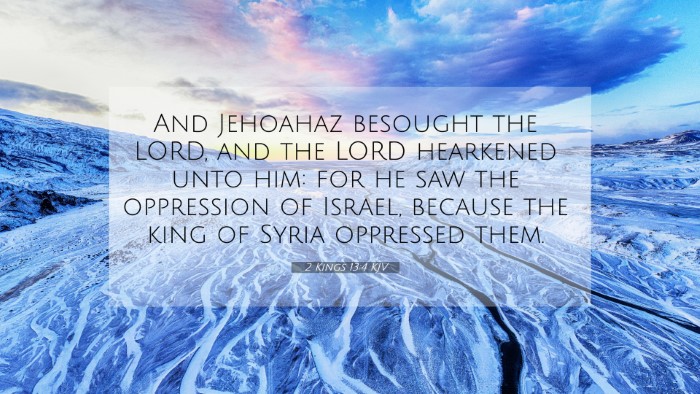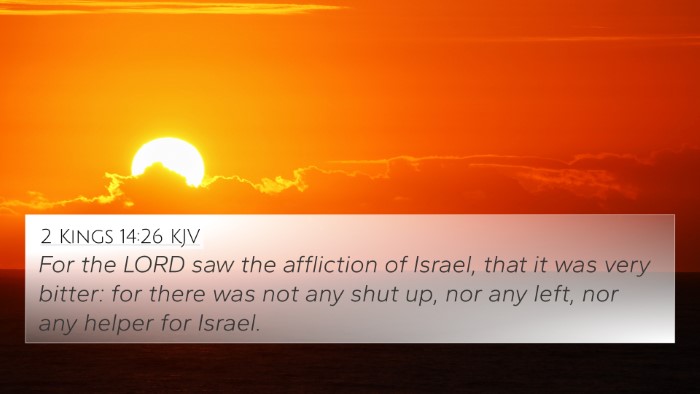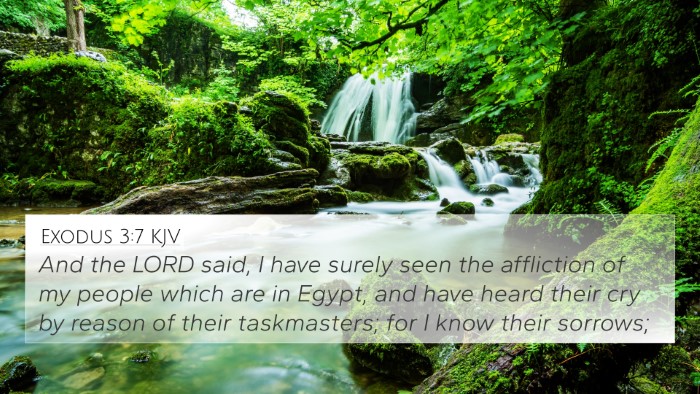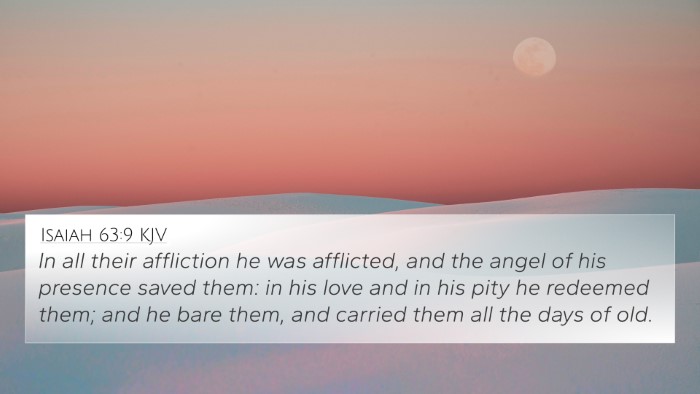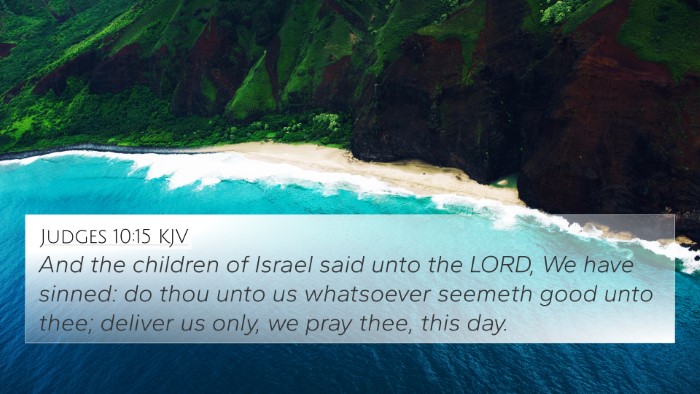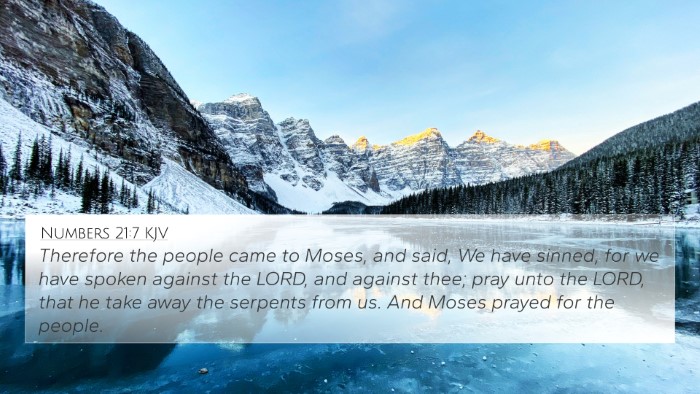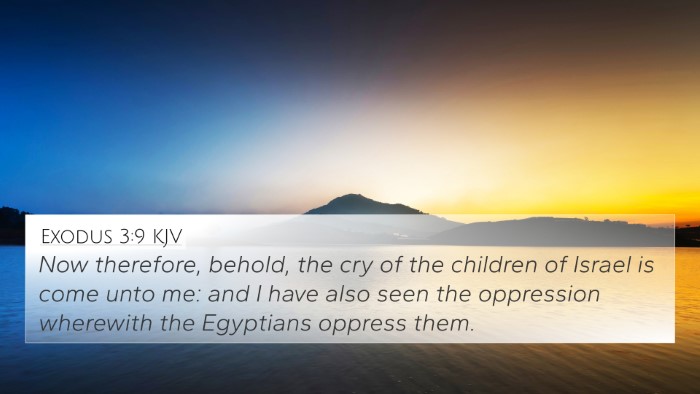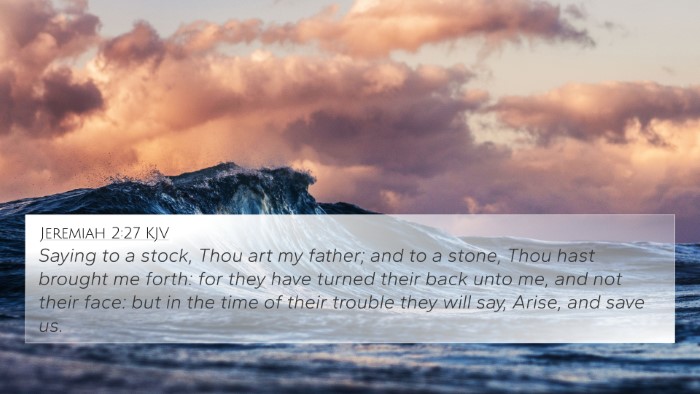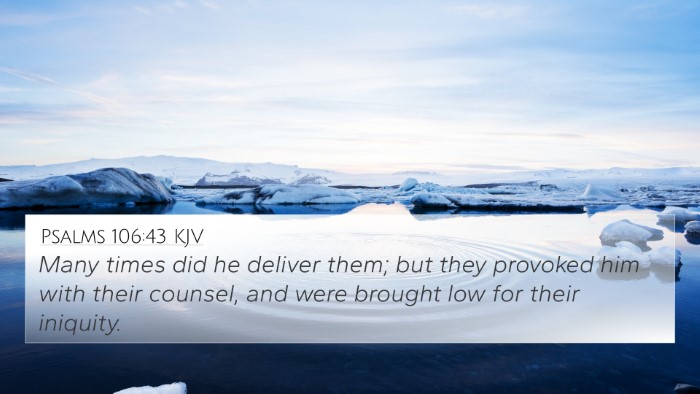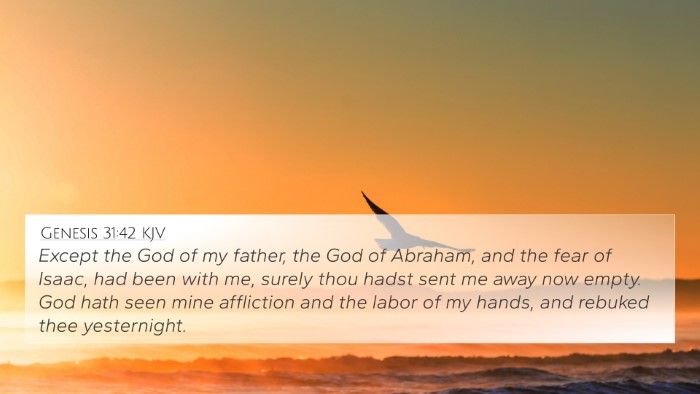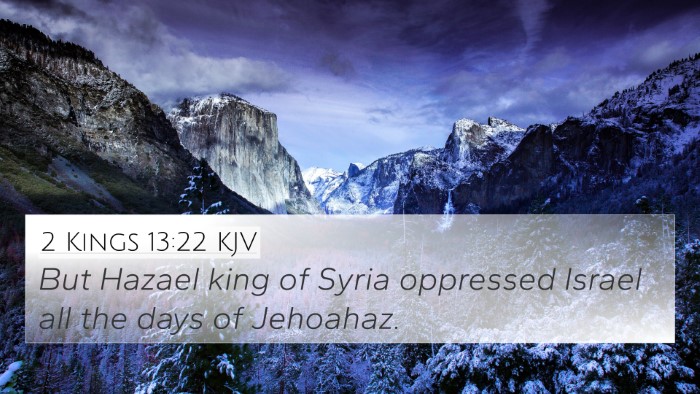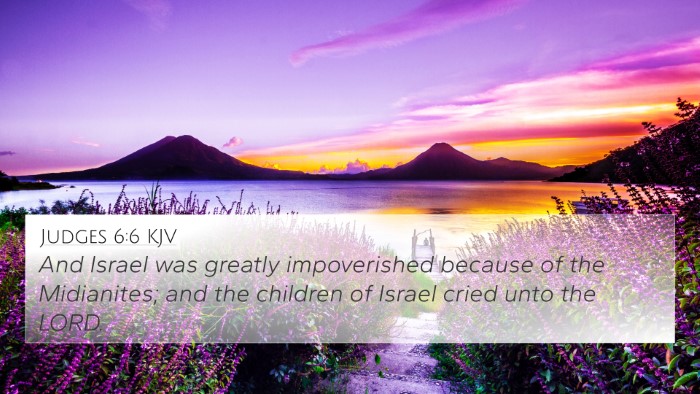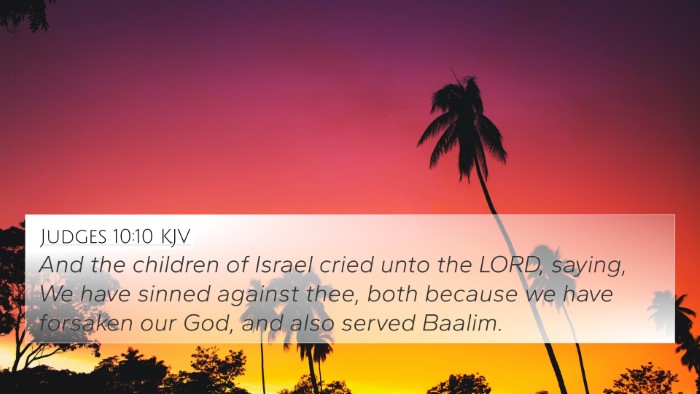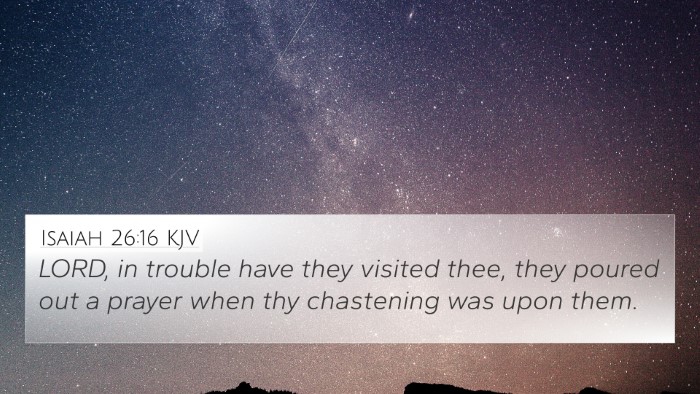Understanding 2 Kings 13:4
Verse: “And Jehoahaz besought the Lord, and the Lord hearkened unto him: for he saw the oppression of Israel, because the king of Syria oppressed them.” - 2 Kings 13:4
Summary of Biblical Insights
This verse provides a glimpse into the desperate situation of Israel under the rule of King Jehoahaz. It highlights the king's plea to God amidst the suffering inflicted by the Syrians, and God's compassion in response.
Commentary Insights
Matthew Henry's Commentary
Matthew Henry emphasizes the significance of Jehoahaz's prayer as a moment of humility and recognition of God's sovereignty. He notes that the king's request for help was not merely a cry for relief but a profound understanding of Israel's dire need for divine intervention. God’s willingness to listen reflects His mercy and concern for His people, illustrating that even in their unfaithfulness, God remains compassionate.
Albert Barnes' Notes
Albert Barnes observes that this passage illustrates God's responsiveness to the prayers of His people. He highlights the context of oppression, shedding light on how the oppression by the Syrians was a significant factor that drove Jehoahaz to sincerely seek God. Barnes also notes that this account serves as a reminder of the cyclical nature of sin and oppression, making it clear that turning back to God is a source of hope and recovery for the nation.
Adam Clarke's Commentary
Adam Clarke focuses on the implications of this verse within the broader narrative of Israel's history. He notes that God heard Jehoahaz because of the suffering of the Israelites, marking a crucial distinction that divine help is often prompted by genuine suffering and repentance. Clarke also connects this occasion to the overarching theme of God's fidelity, declaring that even when the Israelites strayed, God was attentive to their cries for restoration.
Cross-References to 2 Kings 13:4
- Psalm 34:17 - "The righteous cry, and the Lord hears, and delivers them out of all their troubles."
- 2 Chronicles 20:9 - "If calamity comes upon us, whether the sword of judgment, or plague or famine, we will stand in Your presence before this temple that bears Your Name and will cry out to You in our distress, and You will hear us and save us."
- Jeremiah 29:12 - "Then you will call upon me and come and pray to me, and I will hear you."
- 1 Kings 8:28-30 - "Yet give attention to your servant's prayer and his plea for mercy, Lord my God. Hear the cry and the prayer that your servant is praying in your presence this day."
- James 5:16 - "The prayer of a righteous person is powerful and effective."
- 1 Samuel 7:8-9 - "So the Israelites said to Samuel, 'Do not stop crying out to the Lord our God for us...'
- Exodus 3:7 - "The Lord said, ‘I have indeed seen the misery of my people in Egypt. I have heard them crying out...'"
- Isaiah 58:9 - "Then you will call, and the Lord will answer; you will cry for help, and he will say: Here am I."
- Hosea 6:1 - "Come, let us return to the Lord. He has torn us to pieces but he will heal us; he has injured us but he will bind up our wounds."
Thematic Connections
This verse not only addresses the sufferings of Israel but also opens a dialogue regarding the themes of divine grace, the importance of prayer, and the relationship between suffering and restoration. It represents a recurring Biblical motif where the oppressed cry out, prompting God’s compassionate response. These elements can also be linked to other themes in Scripture, emphasizing the importance of humility and repentance in seeking God’s favor.
Practical Applications
The plea of Jehoahaz serves as a reminder for believers to continuously seek God in times of trouble. It underscores the power of prayer in invoking God’s mercy and provision. This passage provides an essential framework for understanding how God’s character is reflected through His responsive nature towards genuine prayer and need.
Conclusion
2 Kings 13:4 carries a profound message about the nature of prayer and God's willingness to respond to His people’s cries. The commentaries of Matthew Henry, Albert Barnes, and Adam Clarke collectively highlight the integration of humility, suffering, and divine intervention intentionally woven throughout the narrative. Understanding these dynamics offers deeper insight into the character of God and the importance of faithful supplication in the life of believers.
Tools for Bible Cross-Referencing
For those seeking to explore Bible cross-references further, various tools can enhance your study, including:
- Bible concordances
- Bible cross-reference guides
- Computer software and applications tailored for cross-referencing
- Printed reference materials for in-depth study
Using Cross-References Effectively
To employ cross-references in your Bible study, consider these methods:
- Identifying connections between Old and New Testament verses
- Using thematic links to study Biblical topics extensively
- Engaging in comparative studies of different Biblical accounts
- Independently crafting study notes based on relational verse themes
